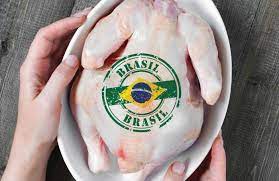UK considers expanding Brazilian poultry imports

London: UK officials visited Brazil in October 2022 to review the control system for beef and poultry meat products. A report on the findings is not yet available but is expected to be published in the future.
Thérèse Coffey, Secretary of State for Environment, Food and Rural Affairs, met with Brazil’s Agriculture Minister Carlos Favaro in England in April 2023. During the meeting, proposals for opening new markets for Brazilian products, especially animal proteins, were covered.
Brazilian media quoted Favaro as saying more imports could happen from June this year.
In April, the UK published updated poultry meat quotas for Brazil, which will enable an increase in sales of such products from July when it comes into force. The volume was expanded by 16,600 tons per year to 96,500 tons annually.
Some Brazilian sites are allowed to export meat such as chicken to the UK and Europe but findings from Operation Carne Fraca led to several plants being suspended by the European Commission. At the time, the UK was part of the EU but has left and can now make its own assessment.
In March 2017, Brazilian police announced the results of Operation Carne Fraca, which began in 2015 and highlighted cases of fraud and corruption in about 20 beef and poultry processing plants in the country.
The EU Commission adopted legislation in May 2018 that said Salmonella had been found in poultry meat and poultry meat preparations. A number of establishments were removed from a list of sites eligible to import products of animal origin to the EU. According to this regulation, cases of fraud had also been detected in Brazil, as part of Operation Trapaça, during laboratory certification of meat products exported to Europe. In 2020, the EU General Court dismissed an action brought by two meat companies, part of BRF Capital, that sought to annul the regulation.
DG Sante conducted audits in Brazil on beef, horse and poultry in May 2017 and early 2018. The agency has listed two visits to Brazil in its 2023 work plan. One is planned on animal health focusing on poultry and another on the microbiological safety of food of non-animal origin.
EU restrictions on poultry meat from Brazil because of Salmonella have been raised four times since 2017 at meetings of the World Trade Organization (WTO). Brazil is also involved in a dispute at the WTO since 2021 on EU food safety criteria for Salmonella on fresh poultry meat and certain poultry meat preparations.
Earlier this month, an operation by the Ministry of Agriculture, Livestock and Food Supply (MAPA) targeted economic fraud by adding starch to curd and cheese. A total of 180 samples were collected in 66 establishments in nine states. Lab analysis showed added starch in nine samples.
Also in May, more than 480 tons of products were seized in the state of Paraná and one person was arrested. MAPA was involved with other federal and state agencies. Among the products seized were 476 tons of garlic and onions, three tons of animal products and 1,500 liters of beverages.
In April, six tons of processed shrimp were found during an inspection in Rio de Janeiro. Action was prompted by complaints of establishments in poor hygiene conditions.
In another operation, 90 tons of products were seized in states in the south of the country. This included garlic and onions, 2.8 tons of animal products and 29,530 liters of beverages. Four people were arrested and another three investigated.





